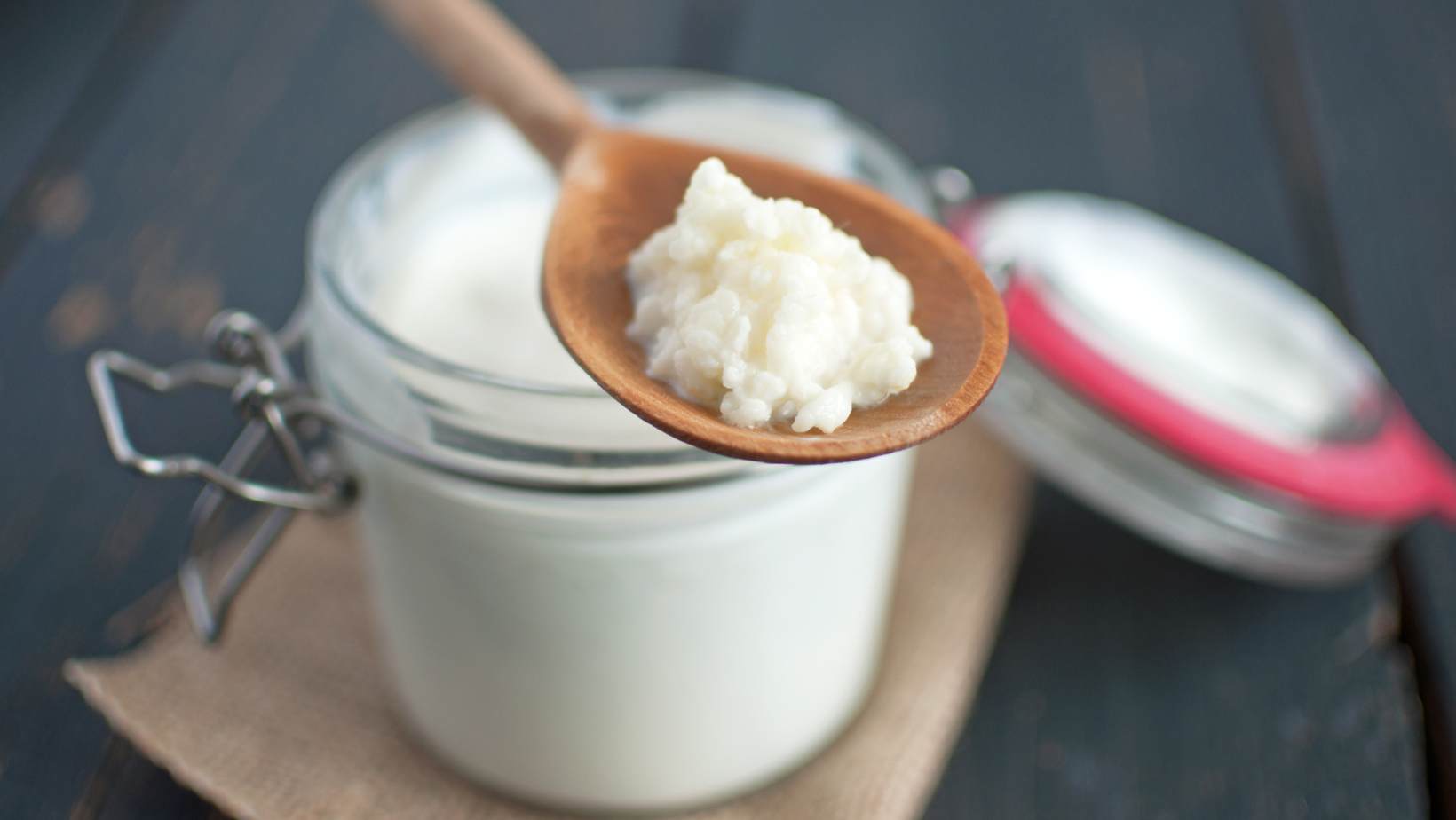Kefir, a fermented milk drink that originated in the Caucasus Mountains, has gained immense popularity in the natural health community. Derived from the Turkish word “keyif,” which translates to “feeling good after eating,” kefir is often considered a more potent version of yogurt. In this article, we’ll explore five of the top health benefits associated with this remarkable probiotic beverage.
1. Nutrient-Dense Superfood
Kefir is an excellent source of various essential nutrients. Traditionally made using cow’s or goat’s milk, kefir is produced by adding kefir grains, which are cultures of yeast and lactic acid bacteria, to milk. During the fermentation process, the microorganisms in the grains multiply and ferment the milk’s sugars, turning it into a slightly sour, thinner consistency drink.
A 6-ounce (175 ml) serving of milk kefir contains approximately 6 grams of protein, 20% of the recommended daily allowance (RDA) for calcium and phosphorus, 14% for vitamin B12, 19% for vitamin B2, and 5% for magnesium. It also provides a decent amount of vitamin D. This nutrient profile comes with about 100 calories, 7-8 grams of carbohydrates, and 3-6 grams of fat, depending on the type of milk used. Additionally, kefir contains a wide variety of bioactive compounds, such as organic acids and peptides, which contribute to its health benefits.
2. Superior Probiotic Profile
Probiotics are beneficial microorganisms that, when consumed, can positively influence various aspects of health, including weight management, mental well-being, and digestion. While yogurt is a well-known probiotic source in the Western diet, kefir is actually a more diverse and potent source, containing around 30 strains of bacteria and yeasts. In comparison, other fermented dairy products are made from fewer strains and do not contain any yeasts.
3. Digestive Health Support
The probiotics found in kefir can help restore the balance of healthy bacteria in the gut, making it a valuable aid for various digestive issues. There is substantial evidence that probiotics and probiotic-rich foods, like kefir, can help alleviate symptoms associated with irritable bowel syndrome (IBS), ulcers caused by H. pylori infection, and other digestive problems. If you struggle with digestive discomfort, incorporating kefir into your diet may provide some relief.
4. Improved Bone Health and Osteoporosis Prevention
Osteoporosis, a condition characterized by the deterioration of bone tissue and increased fracture risk, can be mitigated by ensuring adequate calcium intake. Kefir made from full-fat dairy is not only an excellent source of calcium but also vitamin K, a nutrient that plays a crucial role in calcium metabolism. Supplementing with vitamin K has been shown to reduce the risk of fractures by up to 81%.
A recent animal study demonstrated that kefir can increase calcium absorption by bone cells, leading to improved bone density and potentially preventing fractures. The same researchers conducted a controlled trial on osteoporosis patients and found similar benefits for those who consumed kefir milk in addition to calcium supplementation.
5. Lactose Intolerance-Friendly
Many people with lactose intolerance, a condition where individuals are unable to properly break down and digest the natural sugar lactose found in dairy products, can still enjoy kefir. The lactic acid bacteria present in fermented dairy foods like kefir and yogurt convert lactose into lactic acid, significantly reducing the lactose content. As a result, kefir is generally well-tolerated by those with lactose intolerance.
It’s worth noting that it is possible to make 100% lactose-free kefir using alternative bases such as coconut milk, coconut water, or fruit juice. However, keep in mind that kefir made from non-dairy sources may not provide the same beneficial properties as traditional dairy-based kefir.
Frequently Asked Questions
1. How much kefir should I drink per day?
While there is no universal recommended dosage, consuming 1-2 cups (250-500 ml) of kefir per day is generally considered safe and beneficial for most people. However, it’s always best to start with smaller amounts and gradually increase your intake to assess your tolerance.
2. Can I make kefir at home?
Yes, you can make kefir at home using kefir grains and milk. The process is relatively simple and requires letting the mixture ferment at room temperature for 24-48 hours. Many online resources provide step-by-step instructions for making homemade kefir.
3. Are there any side effects associated with drinking kefir?
While kefir is generally safe for most people, some individuals may experience side effects such as bloating, gas, or constipation, especially when first introducing it into their diet. These symptoms typically subside as the body adjusts to the increased probiotic intake. If you have a milk allergy or are severely lactose intolerant, it’s best to consult with a healthcare professional before consuming kefir.
In conclusion, kefir is a nutrient-dense, probiotic-rich fermented milk drink that offers a wide array of health benefits. From supporting digestive health and improving bone density to providing a more tolerable option for those with lactose intolerance, kefir is a valuable addition to a balanced diet. By incorporating this powerful probiotic beverage into your daily routine, you can experience the many advantages it has to offer and embrace the feeling of “keyif” – feeling good after eating.
